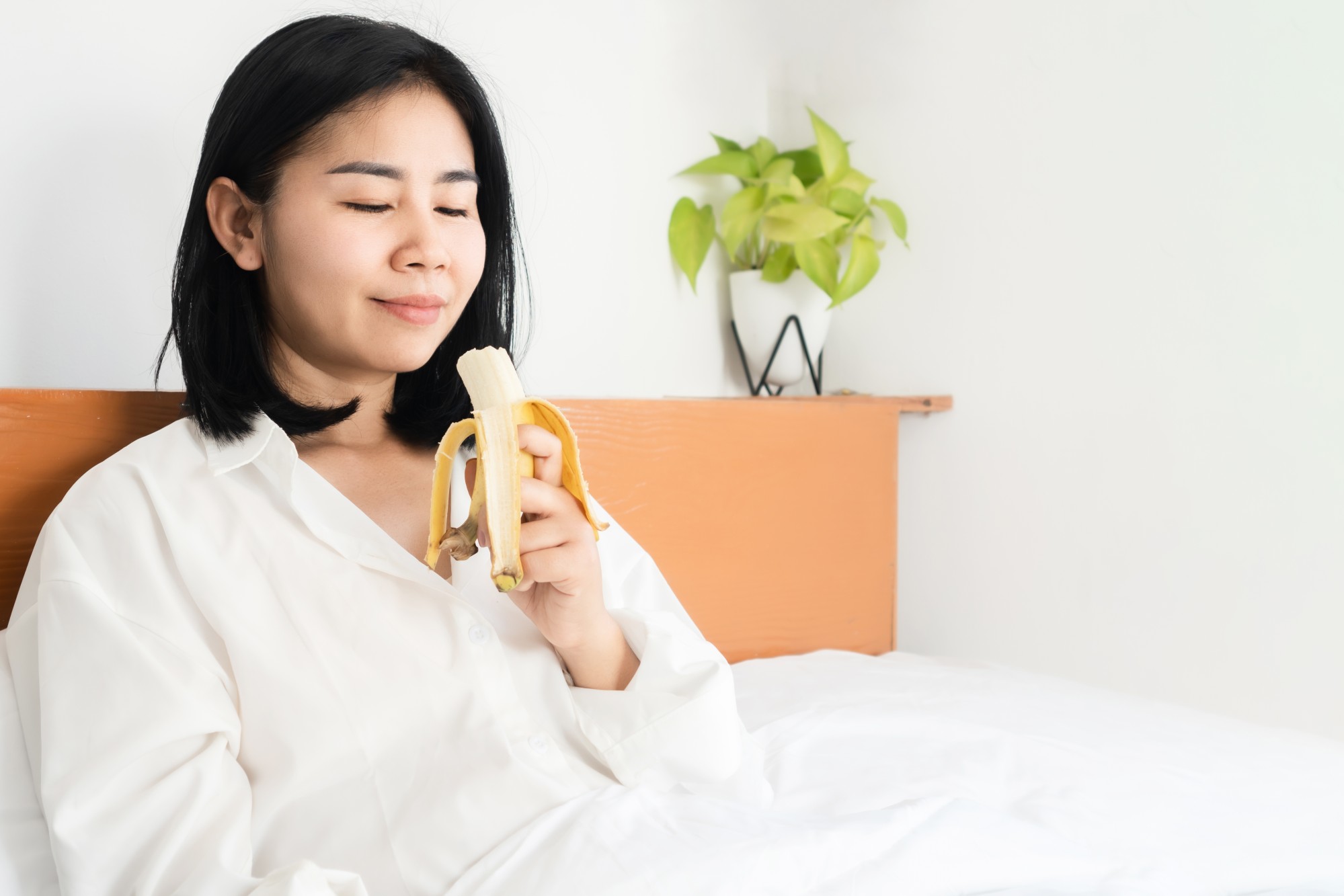
Trouble sleeping? A plant-based diet could help with insomnia, experts say. Here’s what to eat to get the rest you need
- Many of us suffer sleep problems that can affect our well-being. Studies link eating more plant-based foods to falling asleep faster and better-quality sleep
- On World Sleep Day, we look at what fruit, vegetables and nuts are best for treating insomnia, sleep-promoting eating habits and more, with the help of experts
On World Sleep Day, we are reminded of the importance of a good night’s sleep.
Sleeplessness is a common concern. Stress, long working hours and less than ideal sleeping environments can keep us from falling asleep and getting good-quality rest at night.
Insomnia can negatively affect our overall health, with many studies linking the sleep disorder with an increased risk of cardiovascular disease, diabetes, anxiety, depression, obesity and memory problems, weakened immunity and low sex drive.
In Hong Kong, the Population Health Survey of 2014/15 – the most recent one to assess sleeping habits – found that around 48 per cent of people aged 15 and above experienced sleeping problems, namely “difficulty falling asleep within 30 minutes”, “intermittent awakenings or difficulty in maintaining sleep during the night”, and “early morning awakening and [inability] to sleep again” in the 30 days preceding the survey.
The percentage of people who experienced each problem three or more times a week was 6.8 per cent, 7.3 per cent and 6 per cent, respectively.

While there are many reasons a person might suffer from insomnia, a recent study found that what we eat can play a role in our ability to fall and stay asleep.
The decade-long study, published in December 2023 in the European Journal of Clinical Nutrition, found that people following a vegetarian diet may have a lower risk of insomnia.
How good sleep benefits heart health, and 5 tips for a better night’s rest
Out of the nearly 6,000 participants, researchers observed that, compared to the non-vegetarians, vegetarians had around one-third fewer instances of insomnia.
A separate study published in October 2023 in the journal Sleep Health looked at the diets of more than 2,000 people in China.

“The fibre promotes slow carbohydrate release into the system, keeping blood sugar levels stable as we rest,” she says.

It is known, however, that having a diverse yet balanced group of gut bacteria plays a role in:
-
regulating neurotransmitters like gamma-aminobutyric acid (GABA), which are important for mood regulation and relaxation;
-
regulating the immune system;
-
reducing inflammation;
-
regulating hormone production and metabolism; and
-
moderating stress.
“All of these can have a positive impact on sleep quality,” Chan says.
A plant-rich diet can also help us maintain a healthy weight.
It is well documented that people who carry extra weight have higher rates of sleep apnoea and are more at risk for this condition.
‘I felt like a new man’: how sleep apnoea surgery helped a father lose 15kg
“Someone who is overweight is also more likely to have a poor-quality, high-fat diet, which will only exacerbate disrupted sleep patterns.”
A diet that is heavy in meat, dairy and other animal products tends to be high in protein, saturated fat and cholesterol – foods that take longer to digest.

Eating them too close to bedtime can prevent us from getting a good night’s sleep, especially since our digestion slows down at night, says Michele Wisla, a Hong Kong plant-based culinary health coach and an instructor for PCRM’s Food for Life healthy cooking classes.
Animal-based foods also trigger increased production of acid in our stomach to help break them down. This may lead to acid reflux or gastro-oesophageal reflux disease (GORD), which causes uncomfortable symptoms such as heartburn that may affect our sleep quality, Wisla adds.
Which plant foods most help us fall asleep faster and promote a more restful sleep?

McBurnett says eating foods that are high in folate/folic acid may also boost sleep quality (experts associate a deficiency in folic acid with poor sleep). Green leafy vegetables – such as kale, spinach, and broccoli – beans, nuts and seeds are all high in this nutrient.

If you are looking to improve your sleep quality, it is also important to look at when and how you eat, Chan says.
For instance, he recommends having dinner no later than four hours before bedtime, and chewing your food slowly and thoroughly to help break it down – taking about 20 to 30 chews per bite.

“If you eat too fast you’ll end up overeating, which isn’t good for your digestion and may interfere with your sleep,” he says.
And your diet does not stand alone. Wisla says to also assess your other lifestyle habits, such as exercise and stress management.

